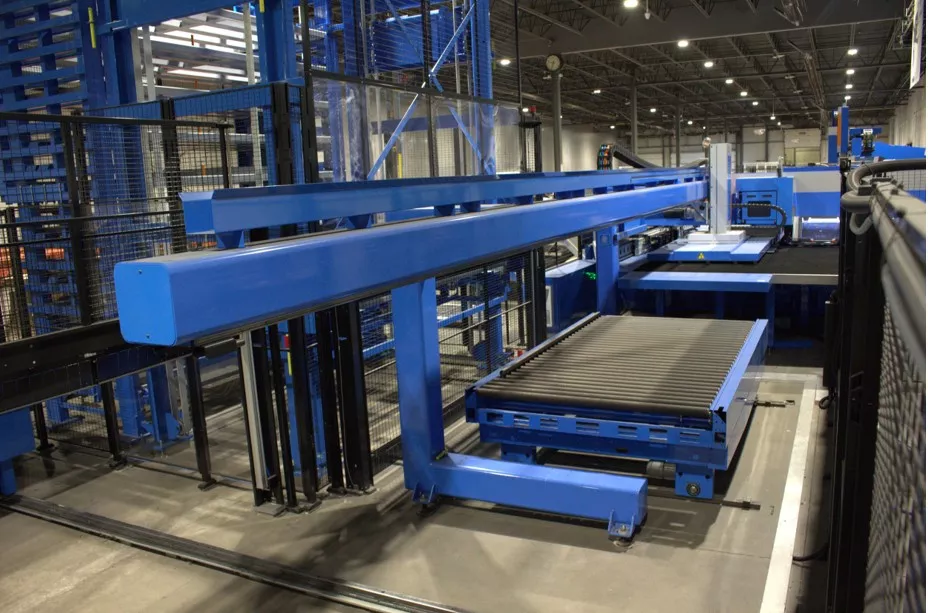A new Industrial Strategy for the UK: Machinery & Manufacturing explores the industry’s reaction

The Government’s new Modern Industrial Strategy, published in late June, is being described by many as the boldest commitment to British manufacturing in over a decade. With £4.3 billion pledged across key sectors, alongside the launch of four sector-specific plans: Advanced Manufacturing, Clean Energy, Digital & Tech, and Defence – the announcement could mark a turning point for CNC-intensive and precision engineering businesses in the UK.
There is clear ambition in the strategy, but industry reactions have been mixed. While some welcome the long-term vision, others remain cautious, highlighting the need for realistic timelines and clearer commitments to delivery.
What’s inside the strategy?
The Modern Industrial Strategy, together with the Technology Adoption Review and four dedicated sector plans, is now live at gov.uk/industrialstrategy. The central goal is to position the UK as a global hub for innovation, advanced manufacturing, and industrial scale-up. The Advanced Manufacturing Plan places emphasis on six “frontier” sectors – automotive, aerospace, batteries, space, advanced materials, and agri-tech, all with extensive supply chains that include CNC, high-precision, and electrical manufacturing.
Key highlights for CNC and engineering firms:
- £2.8 billion in funding for innovation, automation, and digital adoption
- Electricity cost relief for over 7,000 energy-intensive manufacturers from 2027, subject to consultation
- £99 million expansion of the Made Smarter Adoption programme for SMEs
- New Robotics and Autonomous Systems (RAS) hubs to accelerate uptake of automation
- A Grid Connections Accelerator to speed up industrial infrastructure roll-out
- £4 billion scale-up capital available through the British Business Bank
- A new Supply Chain Centre to assess risks and strengthen domestic sourcing
- Public procurement reform to reduce barriers for SMEs and new market entrants
What industry leaders are saying
Jeff Hart, Head of Policy at the Manufacturing Technologies Association (MTA), welcomed the focus: “Putting skills, capital investment, and energy relief at the forefront aligns closely with long-standing calls from our members. But the execution must match the ambition. Consistency across governments and departments is critical now.”
Clare Williams, Director at Northern CNC Group, highlighted the importance of supply chain resilience: “The new Supply Chain Centre is a welcome move. UK manufacturers need data-driven insights and long-term supplier stability, particularly across high-precision sectors.”
Dr Alan Cross, Training Lead at ProMach UK, was optimistic about the skills announcements: “The creation of Technical Excellence Colleges and new short courses tailored to SMEs is overdue. Getting this right could be the biggest win for manufacturing skills in a generation.”
Andrea Wilson, Director of Hone-All Precision Ltd, called for urgency and stronger SME representation: “I’m concerned about the time frames for energy support, but the commitment to make us competitive with Europe is clear. I am pleased the Industrial Strategy Council will be enshrined in law, ensuring accountability and continuity. However, a stronger SME voice on the Council is essential.”
Sam Baynham, Managing Director of ConeX Portal, warned of persistent challenges: “There’s strong alignment on the importance of skills and funding. However, tailored action plans for SMEs are still missing. Severe skills shortages are a here-and-now problem. Many SMEs will continue to struggle to recruit and train staff unless this is addressed with urgency.”

Beyond CNC: Sector strategies that matter
Each of the accompanying sector plans adds further depth:
Clean Energy Sector Plan
- £1 billion Clean Energy Supply Chain Fund under Great British Energy
- Industry Growth Plan and Market Demand Guarantees to drive UK-based production
- Collaboration with Ofgem and network operators on advanced procurement mechanisms
Digital and Technology Plan
- £2 billion AI Opportunities Action Plan, including a £500 million Sovereign AI Programme
- £187 million to provide digital skills training to one million young people
- Investment in R&D for semiconductors in Wales and quantum technologies in Scotland
Defence Sector Plan
- 10% of the Ministry of Defence equipment budget allocated to novel technologies
- New procurement rules to support SME participation in defence innovation
Energy relief: Support too slow?
Joe Collison, Managing Director of CES, which works with manufacturers on renewable systems, expressed concern about delays:
“The full effect of this announcement will not be felt until 2027. For many manufacturers, that may be too late. There’s some earlier relief coming in the form of the enhanced Network Charging Compensation scheme, which will rise from 60 to 90% in 2026.”
He adds: “However, most businesses will need to endure high energy costs for at least another 12 to 18 months before they see significant relief. While the £1 billion Clean Energy Supply Chain Fund is promising, its direct impact on electricity bills will take time.”
Skills strategy: A potential game-changer
With over £100 million committed over three years to engineering and technical skills in England, the strategy aims to reduce the long-standing industrial skills gap.
Skills measures include:
- Technical Excellence Colleges in priority regions
- A new Upskilling and Reskilling programme focused on SME needs
- Short courses in AI, digital, and engineering, funded through the Growth and Skills Levy
The goal is to prepare a new generation of workers for a digital, high-tech manufacturing future. Whether this will be enough to meet the sector’s urgent needs remains to be seen.
The verdict: Strategic or symbolic?
The Industrial Strategy clearly signals a renewed focus on advanced manufacturing. It presents a comprehensive set of initiatives that could help unlock growth, modernise operations, and reshore supply chains.
However, as industry voices have made clear, this must be followed by fast and effective implementation. Manufacturers are being asked to invest in people, equipment, and technology with long-term confidence. That confidence must be matched with consistent policy, cross-party stability, and practical support where it is needed most.
What next?
Now that the strategy is live, manufacturers should review the full documentation at gov.uk/industrialstrategy. Companies should explore opportunities in energy reform, capital access, training programmes, and digital transformation.
Opinions aside – The future of UK manufacturing is being shaped now. This is the moment to get involved and help define it.








